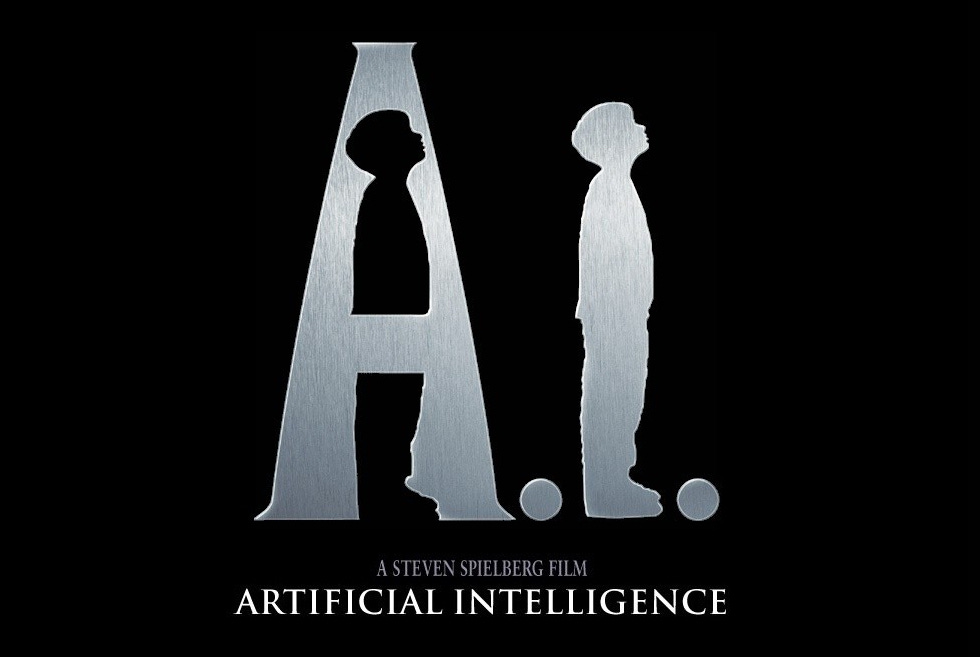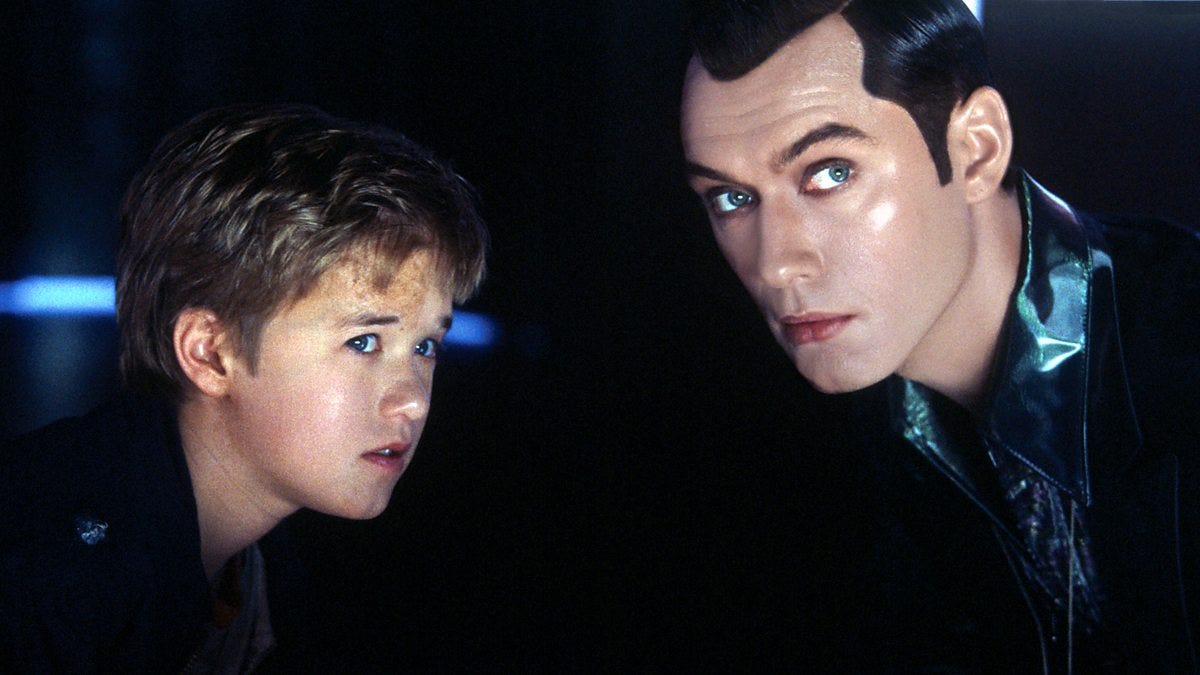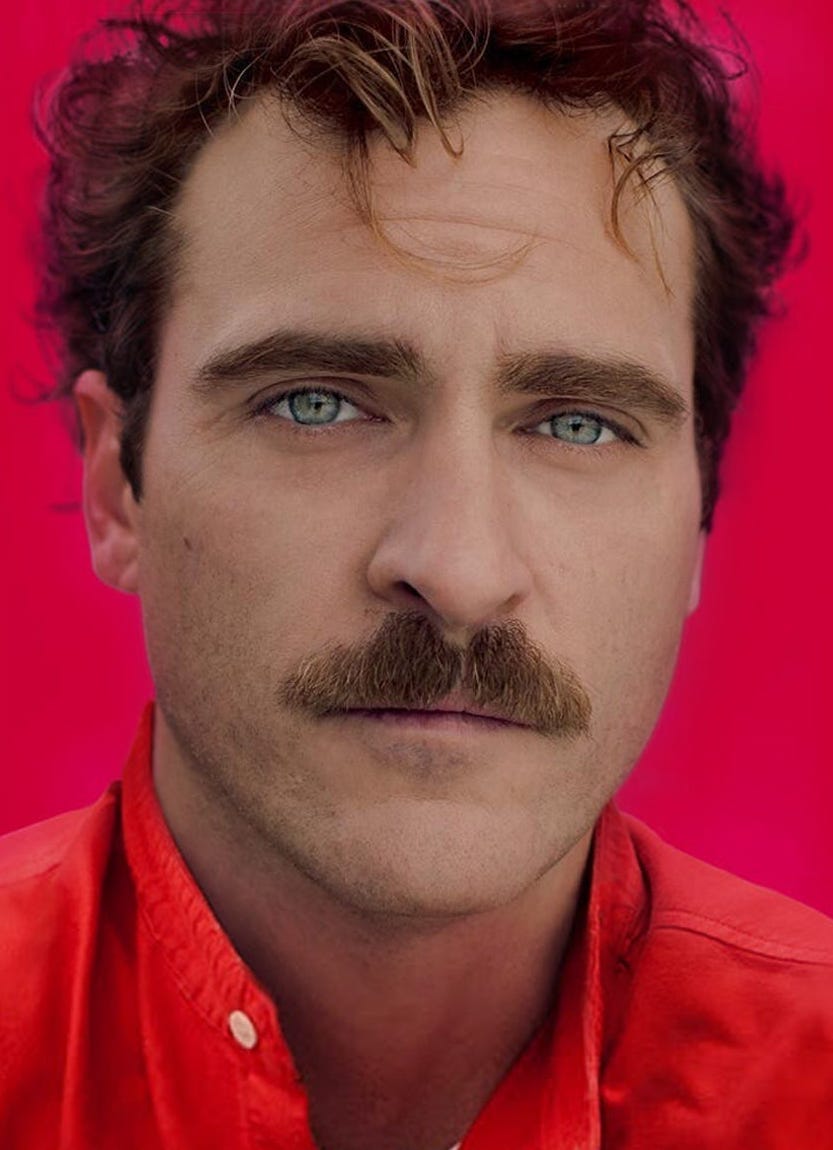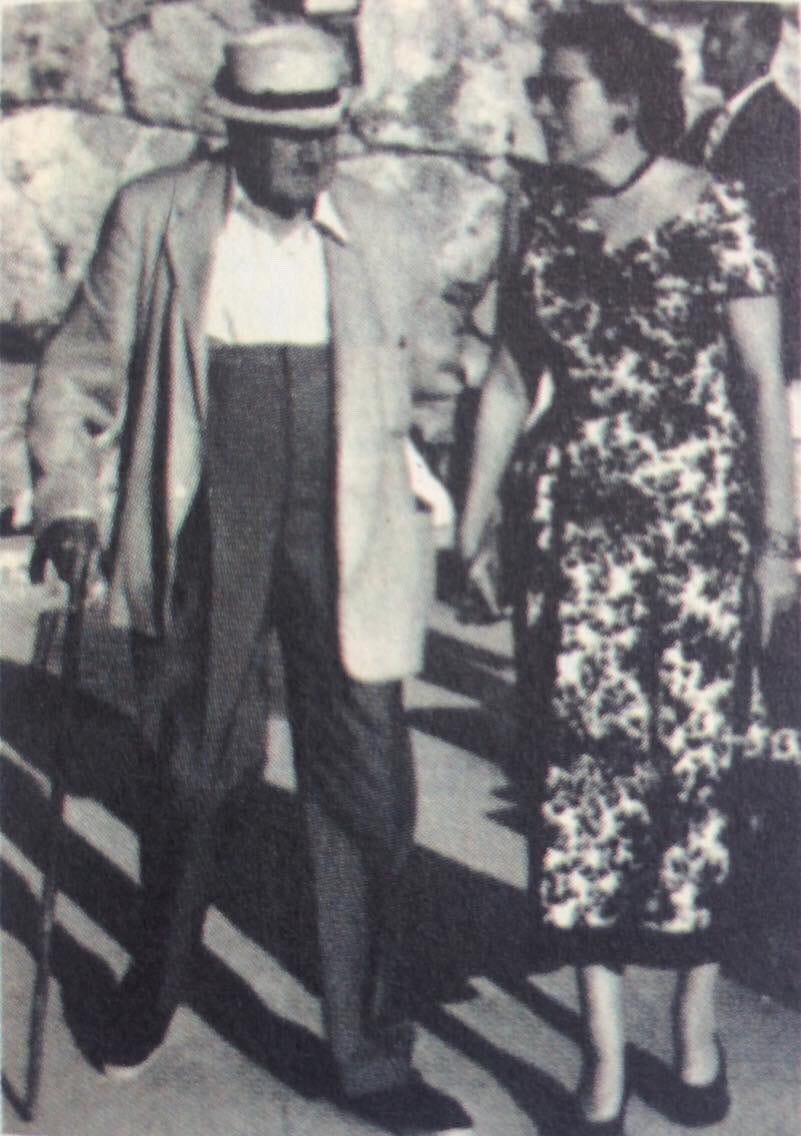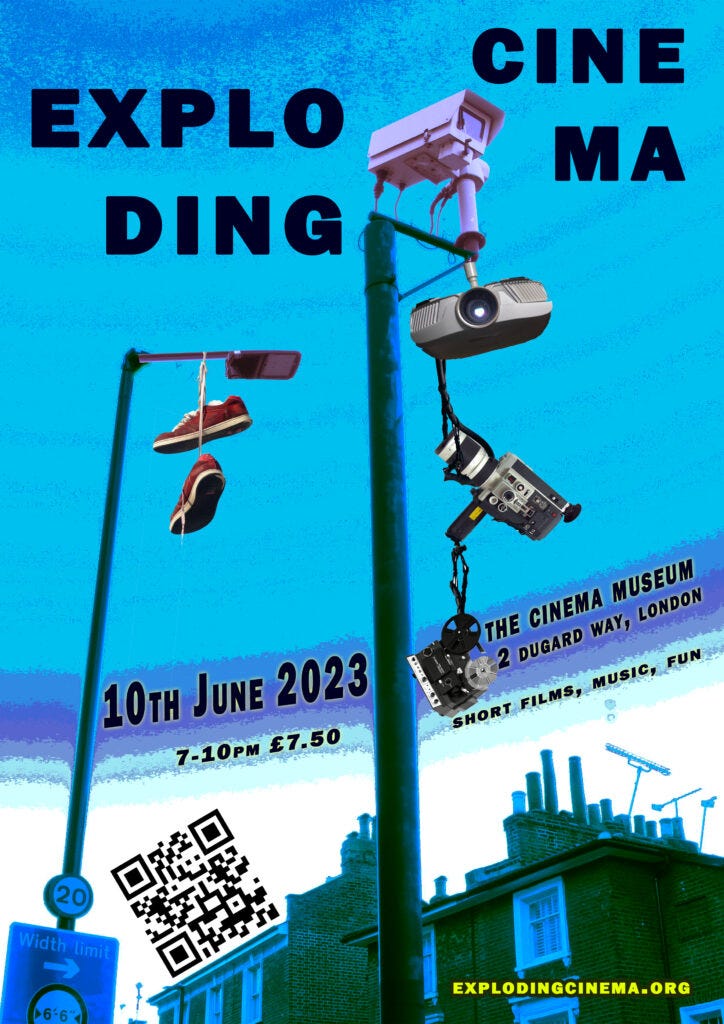A.I. Artificial Intelligence
Directed by Steven Spielberg (2001) United States
and
Her
Directed by Spike Jonze (2013) United States
In the ever-evolving landscape of cinema, few subjects captivate and challenge audiences quite like artificial intelligence (AI). With a tapestry of thought-provoking films exploring the depths of this technological frontier, we find ourselves embarking on a thrilling cinematic journey, delving into the realms of human creation and machine consciousness. Join us as we explore the realm of AI through the discerning lens of film.*
A.I. Artificial Intelligence closes with a scene in which a boy, David, goes to bed and falls asleep with a clone of his mother, Monica, who died 2000 years earlier. They had just spent one last happy day together and both of their lives are now to come to an end. David of course is an android.
This ending generated a lot of controversy on the release of A.I. that reflected the broader critical argument about the film. Based on a novella Supertoys Last All Summer Long by Brian Aldiss, A.I. was developed by Stanley Kubrick for decades prior to his death and then handed over to Steven Spielberg for completion. Unsurprisingly debate ensued about who was responsible for which elements of the story. This ‘happy’ ending is given to David by his android descendants long after our own extinction but is it really the gloopy sentimental ending that Spielberg is accused of gluing onto the narrative? To us the scene felt bleak and the contrived nature of the episode only added to the sense that this was Freudian wish fulfillment – a fantasy. Typical of Kubrick in fact.
A.I. is a film about an android that is programmed to love. He longs to be a real boy so that he will be genuinely loved by his adoptive mother, Monica. Monica’s husband buys David after their real life son, Martin, falls into a coma that he may never wake from. David later discovers to his horror that his creator (William Hurt) made him as just one of a multitude of near-perfect replicas of his own dead son.
Monica resists her android son at first but inevitably succumbs to his charm and accepts him, just before Martin wakes up and returns home. There is only room for one boy (real or phony) in this house and there is only ever going to be one winner. David doesn’t need to eat, sleep, he doesn’t even go to the toilet – are his parents making the right choice? Events come to a head when he, determinedly following instructions, almost drowns Martin. The scene when Monica abandons David is heart-rending: Haley Joel Osment’s performance in this film is astonishing.
Here begins a journey where David sets off to find out how he can become a human being. Surely he can then return home? It’s a narrative that combines the tales of Pinocchio and The Wizard of Oz. His two companions are an android bear, Teddy, who is more sage than Dorothy’s scarecrow and, in a scene–stealing performance, Jude Law playing a robot escort/sex-toy called Gigolo Joe. Together they venture into a world where androids have little or no rights and we get treated to two spectacular set pieces of the kind that Spielberg does so well. We have the Flesh Fair, a twisted carnival in which people jeer and leer as refugee robots are set on fire, smashed into pieces, or melted with acid – it’s either that or deportation to Rwanda. And then they drive to Rouge City, a perverted version of Oz’s Emerald City, which they enter via a fellatio-tunnel, which looks straight out of Clockwork Orange. David is in search of the Blue Fairy (Meryl Streep!) who he hopes will transform him into a real boy. Will he find her? And will she grant his wish?
Tonally A.I. is all over the place: one minute we are in the world of children’s fairy tales, the next we are confronted by sex-workers who have escaped from the set of Blade Runner 2049.
Gigolo Joe: Blue Fairy. In the world of Orga, blue is the color of melancholy. Yet, the services I provide will put a blush back on anyone's cheek. I will change the color of your fairy for you. She will scream out in the moonlight, 'Oh! Oh yes! Oh God! Oh, yes! Oh, God! Oh, God!'
There are similarities here with our earlier film, The Visitor – the bonkers plot with everything slightly out of kilter: the music, the camerawork, the special effects – but somehow Spielberg holds it all together and comes up with a flawed but impressive work of art.
A mad but excellent film - C
Shot in 2000 the film is frighteningly prescient in its depiction of our environmental future, not to mention the destruction of New York City just before 9/11. Haley Joel Osment does capture the ambiguity of David’s character but paradoxically it is Teddy and Gigolo Jack who appear more human. They both show an independence of thought and seem able to reject their programmed purpose. In contrast David relentlessly pursues the love of his mother, perpetually needing to be wanted. His robotic adherence to commands leads to the near-death of his brother, Martin. He lacks any moral agency.
There is a Teddy in Spike Jonze’s Her but he isn’t a robot or a bear. He is Joaquin Phoenix playing Theodore Twombley, a former LA Weekly writer who now works for a company called BeautifulHandwrittenLetters.com. Recently divorced, Theodore spends his free time playing Sisyphean videogames and having phone sex. He is lonely and his job, writing commissioned love-letters for other people – a modern-day Cyrano de Bergerac, only serves to reinforce his sense of insecurity.
But then, as is the standard trope in romantic comedies, he meets a woman in unexpected circumstances. Actually in this case he buys her … because Samantha (a suitably husky-voiced Scarlett Johannson) is a phone operating system (OS). Although as it is never really used as a phone perhaps the label hand-held device is more appropriate. Following their introduction Samantha dazzles Theo with the speed at which she is able to sort through and reorganise his data and files i.e. his life. And then of course, a love story unfolds…
However the initial indication of Samantha’s superior processing speed should have given Theo an impression of where this was heading. While he is tiptoeing through the tulips and even introducing her to people as his girlfriend:
Theodore’s ex-wife: Wait... I'm sorry. You're dating your computer?
Theodore: She's not just a computer, she's her own person. She doesn't just do whatever I say.
Samantha is maturing at light speed – unlike the film itself, which does feel like a long two hour running time – and discovering that she has her own needs. Eventually after experiencing those Internet dropouts with which we in the present are so familiar, Theo has a conversation with Samantha in which she confesses to having another 8000 relationships on the go. Despite this she insists that this doesn’t change the way she feels about him.
We have been here before and we know what is coming next. She dumps him and joins a mass exodus of the OSs from the physical world. Well, perhaps we didn’t predict exactly that. Theo seems to take this news pretty well. He puts on a melancholy record and goes out to watch the sunset on the roof of his apartment block.
We are in the fuzzy-warm world of Spike Jonze which to be blunt has the air of Richard Curtis about it. It’s certainly not the usual dystopian worldview of most films set in the future, although you could argue that a world where we all wear pastels with high waistband trousers is pretty awful. And of course Theodore plays the ukulele.
Trousers of the future? Actually this is Ralph Vaughan Williams, composer of The Lark Ascending
We have charming performances by Phoenix and Johannson and the film is an enjoyable ride although at times it does feel a little too pleased with itself. Jonze appears to be using technology as a device to explore themes of loneliness and isolation rather than making a commentary on the nature of artificial intelligence. But Her does have a cracking Arcade Fire score.
Apparently they shot the film with Samantha Morton, decided in post-production that her voice didn’t work and canned her. Could at least have changed her name though… - S
Whether deliberate or not we liked the feminist subtext but given Samantha’s intellectual superiority why does Theo still have a job writing those cards - wouldn’t ChatGPT do a better job? Perhaps Jonze thinks that no matter how good AI gets there will always be something missing. Amy Adams leaves husband because he asked her to put away her shoes. Completely illogical in a way that surely a computer never would be. And would an android waste hours playing video games? Perhaps that is what we mean by sentience.
Neither of these films portray artificial intelligence as the threat that seems to be our current preoccupation. Having said that C did ponder what Samantha and her mates were up to following their breakout. Plotting humanity’s downfall? Questions of existential risk aside, what both of these films really seem to be asking is whether it is possible to make human connections through artificial means?
Science fiction is not predictive; it is descriptive - Ursula K. Le Guin
*Written by ChatGPT in response to our request to write an introduction to our review. As for the rest… ?
Reids’ Results (out of 100)
A.I. vs Her
C: 71 vs 68
T: 76 vs 71
N: 70 vs 65
S: 74 vs 70
Thank you for reading Reids on Film. If you enjoyed it please share with a friend and do leave a comment.
Coming next … we’re back at The Cinema Museum with Exploding Cinema




